It’s book review day! This month, rather than splitting my November Quick Lit across two posts, I’m sharing all of my reviews in a single post, so I’ll skip the lengthy preamble and jump right to the reviews.
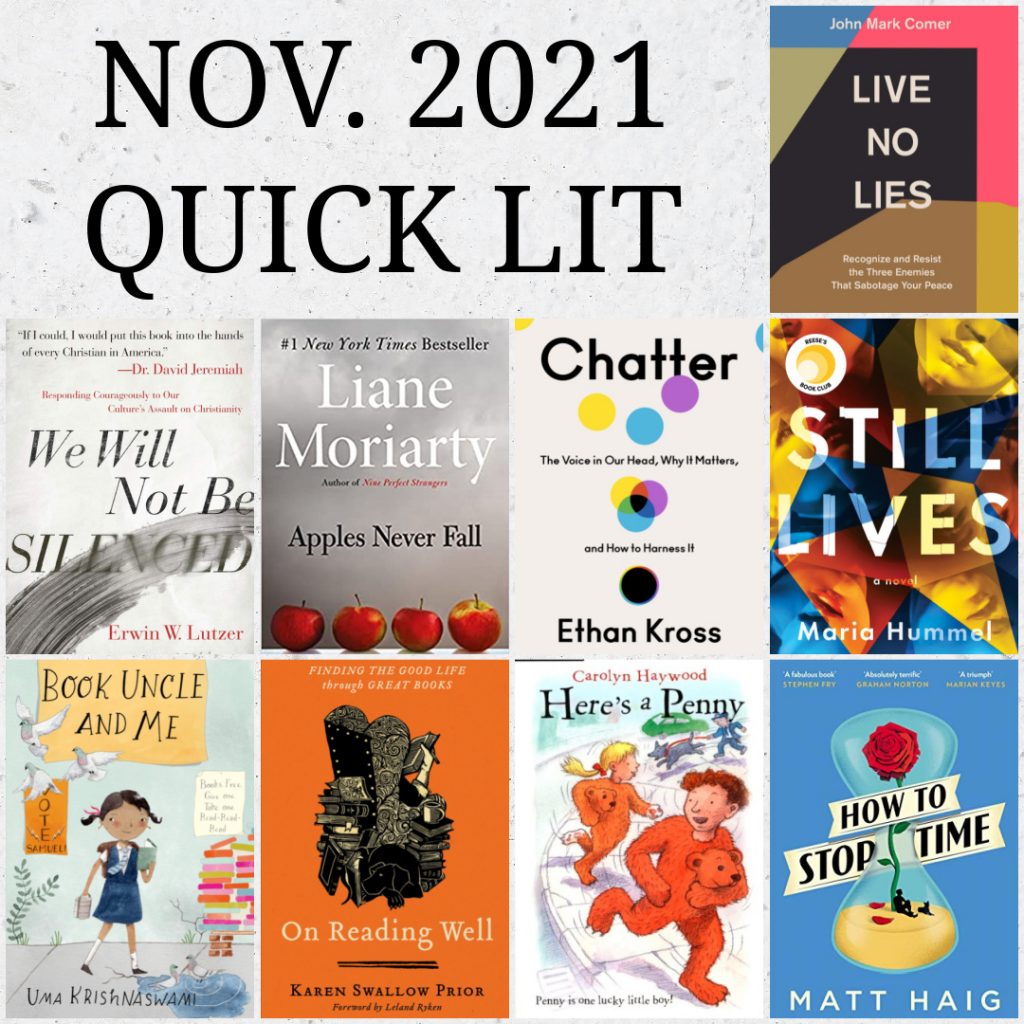
MIDDLE GRADE
Here’s a Penny, by Carolyn Haywoood: Here we have another of the assigned books from our curriculum (Sonlight). It’s the story of 6-year-old Penny, the endearing adopted son of two doting parents who shepherd him through boyhood problems (unkind friends, the search for a pet, and a desire for a sibling) and shenanigans. Penny’s parents teach him simple lessons about faith, love, and family, and they encounter plenty of humorous moments along the way.
Published in 1942, this is very much a book of its time. The writing is simple, and the stories are innocent, one-dimensional, and moralistic. I didn’t mind the dated stereotypes or stylistic choices, and these were actually a draw for Charleston (who adored this book and is asking to continue with the series)—many modern books try too hard to be relevant, and I’ve found that the older books are often more popular with kids, who don’t need all the bells and whistles we adults presume they want. In that sense, books like this one are exactly what I want my child to be reading.
That said, I struggled with the problematic messaging embedded in this book, particularly around adoption, which it paints in an overly positive light; this could be very misleading for children (especially adopted children) without an adult reading alongside them. I was also concerned with the book’s discussions of faith. (For instance, when Penny is sad that his cat has gone missing, his mother assures him that if he prays for the cat’s return, God will send the cat back—which, of course, does happen. This is not at all in line with how prayer works, and pretending that it is this easy may set young readers up for faith crises in the future.) These are not prominent parts of the book, but they are worth noting. They made for good conversation-starters with Charleston, but I worry about young readers who do not have a faith-minded parent reading alongside them to help them navigate these prickly topics.
There are far worse books that our children could be reading, and this one does have plenty of redeeming qualities. But with many better reading options out there for young readers, this is not one I would be quick to recommend.
My Rating: 3 Stars. (Charleston’s Rating: 5 Stars)
Book Format: Print
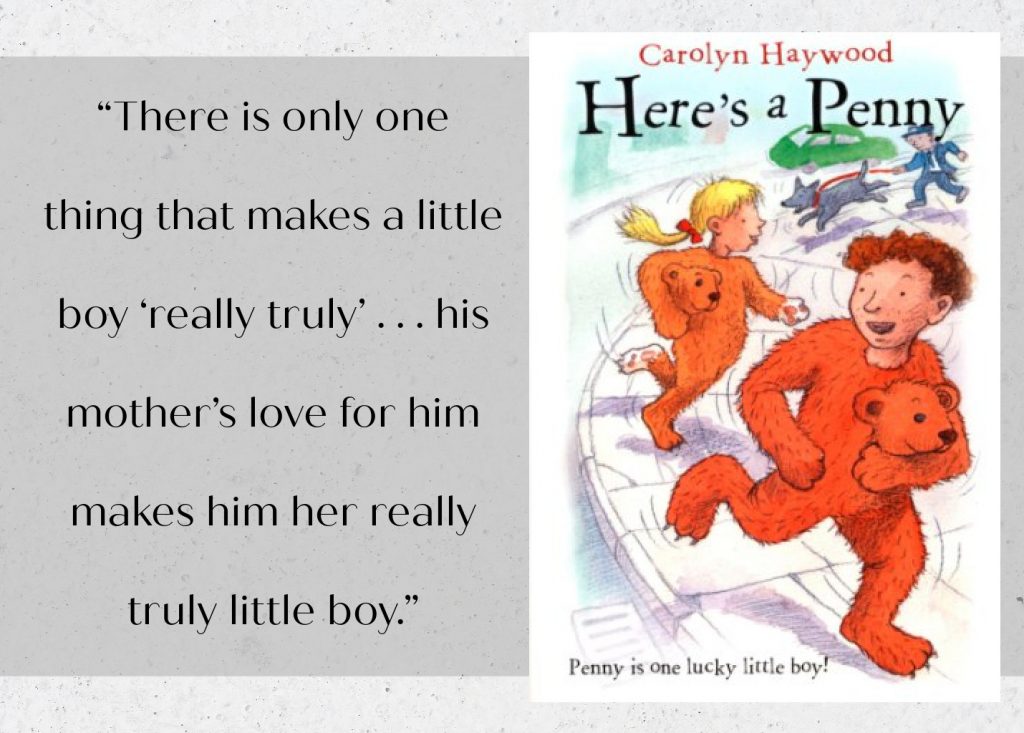
Book Uncle and Me, by Uma Krishnaswami: Yasmin is a 9-year-old bookworm growing up in a city in India. Yasmin’s habit of reading a book each day is satisfied by Book Uncle, a former teacher who lends Yasmin a daily book from his street corner lending library. When the city’s mayor attempts to shut down Book Uncle’s establishment, Yasmin and her friends take it upon themselves to save the beloved book pedaler. With city elections coming up, their best option is to help elect a mayor who will fight for Book Uncle and his library, and Yasmin and her pals set out to convince the adults all around them that their votes matter, and that saving Book Uncle’s library is the issue their city should care most about.
This is a sweet story whose bookish themes spoke to my heart. I loved the book-loving protagonist and was excited to read a book that was so pro-library. I also appreciated the valuable lessons on democracy, loyalty, community activism, and the importance for standing up for justice, truth, and the interests of others. These are great themes for everyone and especially important to introduce to young readers, who are this book’s intended audience.
The setting of inner-city India was new to me, and though I enjoyed the cultural element, there are many Indian words, phrases, and references that made this a challenging book for me to get into (and that were especially hard for Charleston, with whom I was reading this book). The story moves slowly, and the prose is unusual—lots of rhyming, sing-songy turns of phrase, and symbolism. I’m sure this style would appeal to many young readers, but I didn’t care for it and found it distracted from what might have been a lovely book.
My Rating: 3.5 Stars (Rounded up to 4 stars on Goodreads.) (Charleston’s Rating: 4 Stars.)
Book Format: Print
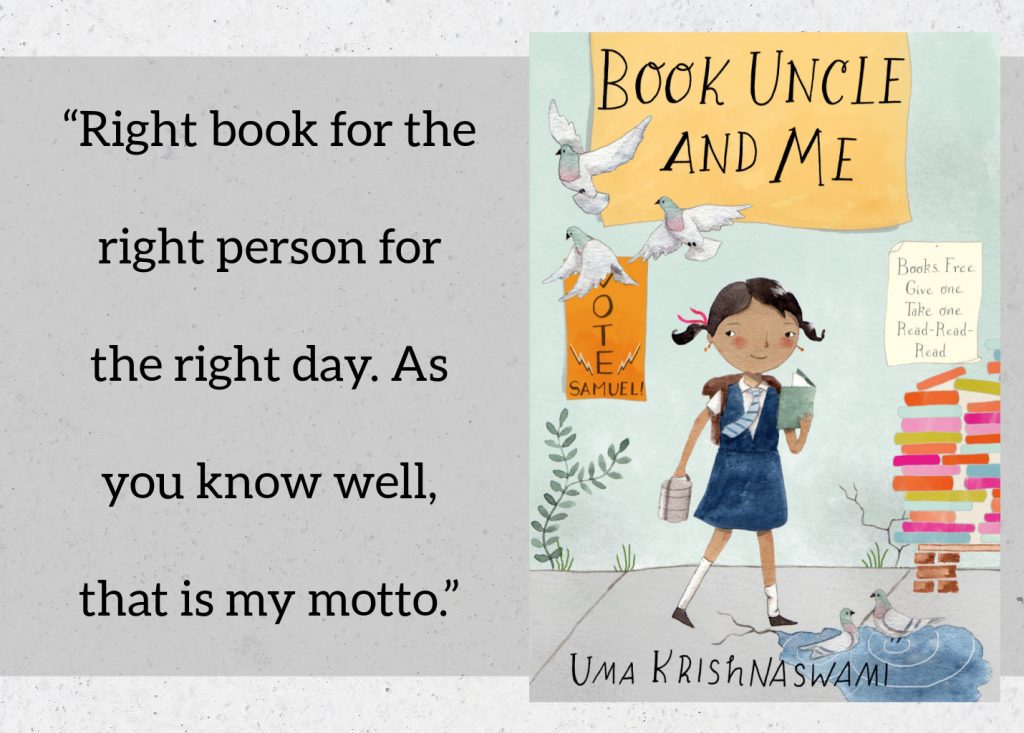
ADULT FICTION
How to Stop Time, by Matt Haig: To the rest of the world, Tom Hazard is an ordinary 41-year-old History teacher who has just returned to London after some time away. What is not apparent to those around him is that Tom knows more about history than your average teacher . . . because he lived it. Due to a rare genetic condition that causes him to age very slowly, Tom has been alive for centuries. He worked alongside Shakespeare, explored the seas with Captain Cook, rubbed elbows with Fitzgerald, and witnessed more historic events and shifts than one could imagine. Tom has stories to fill a library, but the years have not given him what he wants most: love, purpose, and an extraordinarily ordinary life.
Tom is not the only individual afflicted with a centuries-long lifespan, and he and others like him have formed a group that allows them to stay safe and undetected. Tom is growing tired of the compromises and obligations of belonging to this society—but is he willing to do the unthinkable in order to break free?
This is an engaging and fascinating story that seamlessly blends romance, historical fiction, mystery, science fiction, magical realism, and a great deal of philosophy. The fluid storytelling reads like a parable or fable, making this less of a page-turner and more a meditation on the nature of time, the meaning of life, and our connections—both visible and invisible—to history. While I found myself wanting more depth from the characters and the story, the prose is mesmerizing, as are Haig’s reflections on human nature. The premise alone is intriguing, and the conclusions Haig draws from each time period and development are richly thought-provoking. This is very similar in story and themes to The Midnight Library (Haig’s recent bestseller), and while both books are quite good, I think I liked this one more.
My Rating: 4.5 Stars. (Rounded up to 5 Stars on Goodreads.)
Book Format: eBook
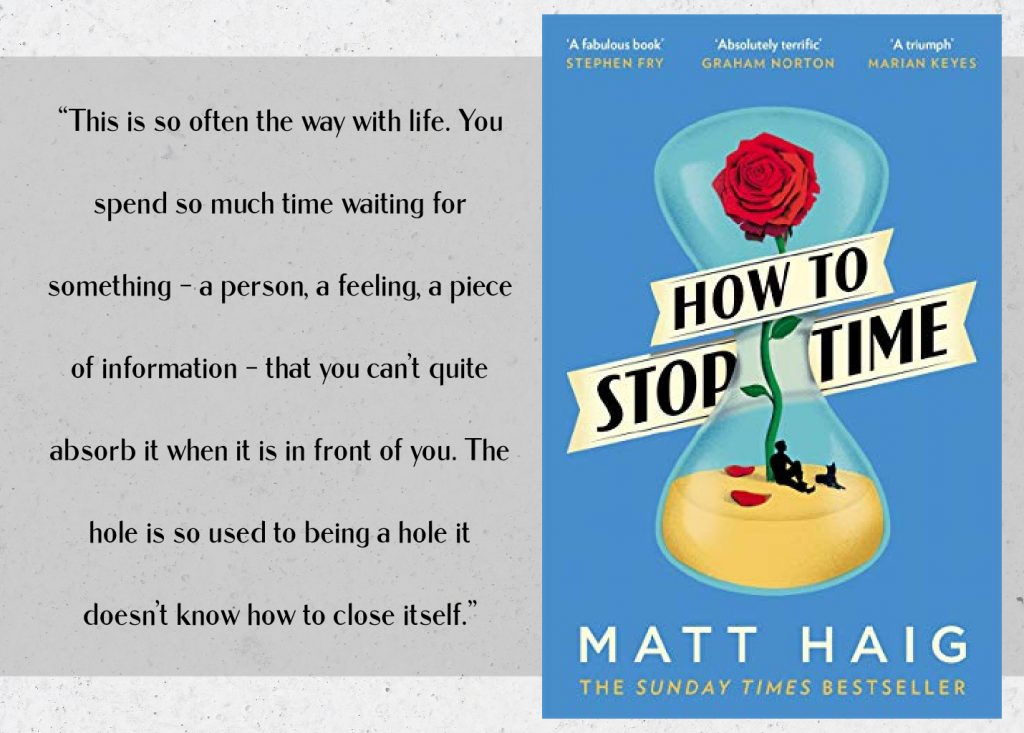
Still Lives, by Maria Hummel: Kim Lord is an eccentric artist known for her morally edgy paintings, and her latest exhibit has the L.A. art scene abuzz. The exhibition, Still Lives, features portraits of eleven famous murdered women (from the Black Dahlia to Nicole Simpson Brown) and makes a powerful and disturbing statement about media coverage of violent crimes and the cultural phenomenon of fetishizing female victims. When Kim Lord moves from artist to potential victim herself after failing to appear at her own gala, Maggie Richter takes it upon herself to determine what happened.
Maggie (an editor at the Rocque Museum featuring Lord’s exhibit) has a personal interest in the case: suspicion has fallen on Lord’s boyfriend (and Maggie’s ex), and Maggie is eager to clear his name, as well as salvage the museum she has come to call home. Maggie’s investigation leads her into the tormented mind of Kim Lord, the violence within her own past and that of many of her closest friends, and deep into the fraught art industry, where power and money speak, and artistry is all but forgotten.
This sounds like a pretty great setup, doesn’t it? And it is: the premise is excellent, the key characters are iconic, and the setting is an enticing one. Unfortunately, the reading experience doesn’t live up to the excitement indicated by this summary. The story finally begins to pick up the pace around the 60% mark, but I struggled to make it through the first two-thirds of the book, and although the story does (mostly) come together, there are quite a few loose plot threads that don’t wrap up satisfactorily and that had me regretting my commitment to seeing this book through to the end.
To give the book some credit, it does have a lot going for it, from a unique mystery and some phenomenal moments of prose, to powerful and thought-provoking commentary on sensationalized violence, female objectification, and the blurred lines between art and life. For a book of this subject matter, there was surprisingly little gore and almost no profanity or bedroom scenes (something I greatly appreciated). But I was frustrated by the lack of character development and a story that draaaaaged. I wish the author had spent more time telling a story and less time focusing on the peripheral themes. There is too much tone-setting and ambiguous reflection and not nearly enough content—it is too “still” without much “life.”
My Rating: 2.5 Stars (Rounded up to 3 Stars on Goodreads.)
Book Format: eBook
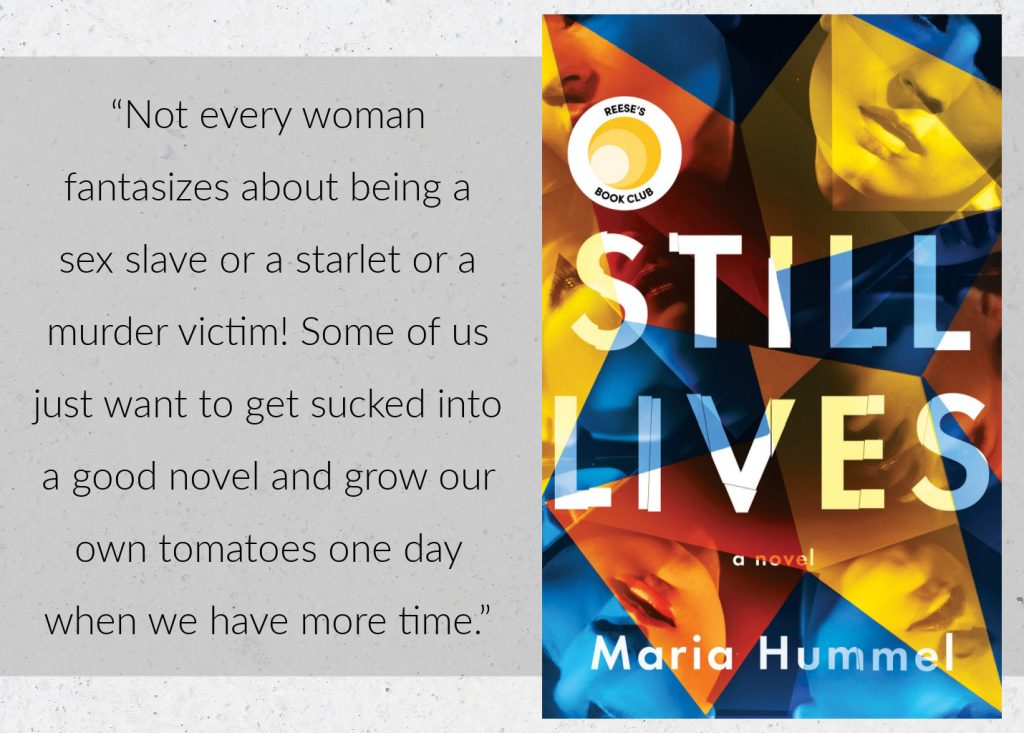
Apples Never Fall, by Liane Moriarty: Stan and Joy Delany have always been “that couple,” the ones admired by all of their community for their palpable chemistry, professional success, and strong business partnership. After fifty years of marriage and having (mostly successfully) launched their four children, the Delaneys have sold their famed tennis academy and are meant to be settling into a happy retirement. But when Joy goes missing, suspicion immediately falls on Stan. Even the four Delaney children worry their father might not be entirely innocent, because the dynamic between Stan and Joy has been strained for months—ever since last year, when a mysterious stranger named Savannah showed up on the Delaneys’ doorstep and quickly wormed her way into their lives in ways that proved nothing short of disastrous.
As detectives work through what has happened to Joy, we get glimpses (through the perspectives of various observers) into how the Delaney children are processing their mother’s disappearance. These present-day scenes alternate with chapters flashing back through the months leading up to Joy’s disappearance, particularly the mystery surrounding Savannah’s entrance into the family. As the narrative unfolds we come to know this family of tennis players whose lives have been marked by unexpected success and heartbreaking failures; illness and infidelity; unfulfilled dreams and unspoken resentments; misunderstanding and misplaced expectations. We see the flaws they’ve kept hidden and the strengths buried even deeper; the sins of their past that threaten to topple their potential for their future; and ultimately, a family who is broken but very much filled with love for one another. There is much dysfunction and bad behavior, along with shocking revelations that lead to a very surprising and unexpected conclusion.
This book is receiving mixed reviews, and I can understand why some have been disappointed. It’s long and at times quite slow, with a lot of build up leading to. . . well, not very much. And while this might be frustrating for some readers, I loved the book. Few contemporary authors can weave a story quite like Liane Moriarty, who is able to craft a breathtaking narrative from the smallest, most mundane events. Her characters leap from the page and earn their way into our hearts; I fell hard for the Delaney family, flaws and all, and wanted nothing more than happiness for all of them.
Family stories like this one are some of my favorite books to read, and I loved the diversity within the four Delaney siblings, whose various life trajectories and temperaments pose unique challenges for their parents and for each other as they attempt to love one another (or even get along at all) through their differences. Moriarty succeeds in painting characters who are distinct yet also believable as siblings; I especially enjoyed seeing the story from each of their perspectives, which come together to form a cohesive view of a family history that couldn’t be understood if seen through only one point of view. Moriarty is such an astute observer of human behavior and personality, and this book (as with all of her novels) left me in awe of her ability to peel back the layers to expose the ugliness and the beauty within each character, the family unit, and even society as a whole.
Other components that made this book a huge win for me: brilliant prose featuring Moriarty’s trademark mix of tender and humorous; a unique format (with various narrators, timelines, and points of view—this did get confusing at times but ultimately was a highlight of the novel); fully-fleshed themes of regret, aging, sacrifice, sibling rivalry, performative parenthood, revenge, found family, and mental health; and a clear-eyed look into the lives of a retired couple, which isn’t something I see much in fiction.
This book is a mishmash of genres, including mystery, light romance, sports fiction, and family saga, all of which work together to form one unputdownable and utterly unforgettable book. This is a messy story but a worthwhile one, and though it might take some time to get into the novel, it is one I wholeheartedly recommend. It’s right up there with Nine Perfect Strangers and What Alice Forgot as a favorite Moriarty book. Those who enjoyed Taylor Jenkins Reid’s Malibu Rising will love this (tamer) read-alike.
(Head’s up for some potential triggers including discussion of eating disorders, child abuse, and mental illness.)
My Rating: 5 Stars.
Book Format: eBook
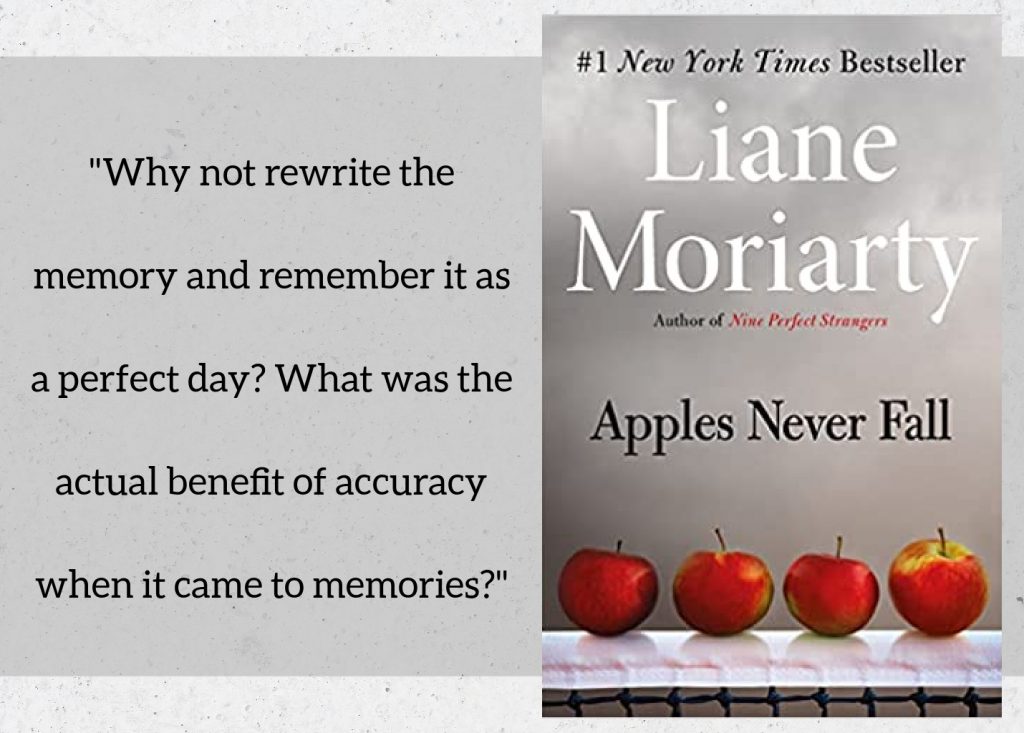
NONFICTION
Live No Live No Lies: Recognize and Resist the Three Enemies That Sabotage Your Peace, by John Mark Comer: In the past few years, John Mark Comer has become one of my most trusted voices in the realm of faith and culture, and what it looks like to follow Jesus in a world that is more and more antithetical to Him. When JMC began showing up on a number of my favorite podcasts discussing this, his most recent book, I was literally chomping at the bit to read it—it was the source I’d been seeking that would explore and bring together a number of issues that have been floating around in my mind lately, from the nature of truth to spiritual warfare to how to engage culture to spiritual disciplines. I pre-ordered the book, began reading the minute it was released, and had to keep myself from reading it all in one sitting.
The book begins with the premise that we are engaged in a war: not a political war or a geographical war or even a cultural war. It is a war against lies, and this war has been going on even longer than our own concept of time. Ancient followers of Jesus were aware of this war and developed a paradigm for fighting it by combatting the three core enemies of the soul: the devil, the flesh, and the world (the devil plants deceptive ideas that play into disordered desires [the flesh] that are normalized in sinful society [the world] ). In Live No Lies, Comer unpacks each of these enemies, illustrating WHY they are our enemies (and have been since the fall of mankind), where they are showing up for us today in the 21st Century, and how we can overcome them.
Every one of these sections was fascinating and applicable, but I was especially intrigued by the sections about the devil, as I have not spent much time directly studying spiritual warfare and this was all new to me; Comer’s discussion of this topic was enlightening without inciting unwarranted fear or straying into mysticism. The section on how to combat the enemy of the world was also very helpful and tied in wonderfully with Beautiful Resistance and We Will Not Be Silenced, both of which I read concurrently with this one. (Beautiful Resistance is more spiritual, We Will Not Be Silenced more political, and this book lands squarely in the middle.)
This book might seem like a strange follow-up to Comer’s last book on eliminating hurry, but they make for an excellent pairing: it is only once we eliminate the hurry from our lives and invest in spiritual disciplines that we can step up to battle with the devil, the flesh, and the world. And while these concepts may feel a little esoteric, Comer deftly navigates challenging ideas, making them accessible and showing why they matter and how to apply them to our thinking and habits.
The content here is relevant and practical, deeply thought-provoking, and convicting. Comer is insightful, humorous, relatable (but not overly casual), and I loved the ideas he presents and the ways in which he presents them. I was particularly impressed by Comer’s ability to discuss political topics without becoming polarizing. He calls out deceptions and misconduct from both Liberals and Conservatives, showing where Christians have allowed political ideologies to overtake Christian truth.
I have recommended this book to nearly every Christian I know and am already preparing for a reread. What a helpful and very necessary book!
My Rating: 5 Stars.
Book Format: eBook
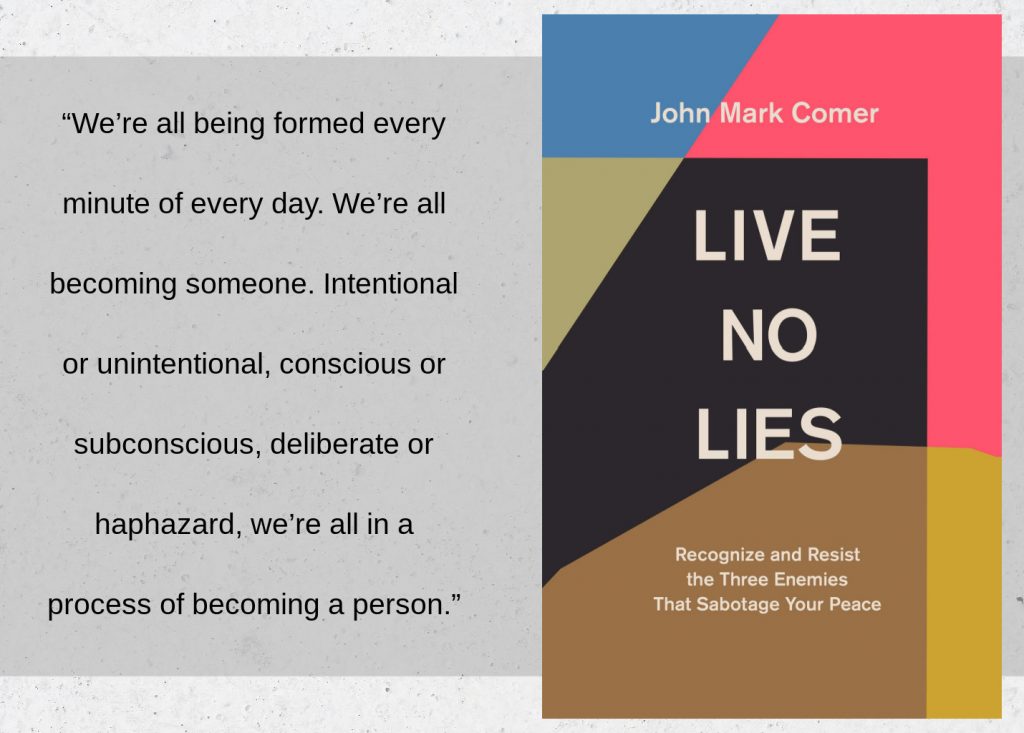
Chatter: The Voice in Our Head, Why It Matters, and How to Harness It, by Ethan Kross: We’ve all spent quite a bit of time in our own heads over the past couple of years. Perhaps this explains a recent proliferation of books about our inner chatter. I’m obviously quite intrigued by this subject as I’ve read many of these books (Don’t Overthink It, Cleaning Up Your Mental Mess, Get Out of Your Head, and Winning the War in Your Mind. . . just to name a few!) Many of those books are written from a Christian perspective; this one is from a secular psychologist and leading expert on controlling the conscious mind.
Kross begins with an explanation of “chatter”: why we talk to ourselves, what this looks/sounds like, and how it can be detrimental. He then offers a variety of tools and tactics for combatting harmful self-talk, from stepping outside of ourselves to clearing out our physical environments to relying on other people, objects, or practices for support in relieving stress and anxiety. These tools are helpful and often counterintuitive. I was especially interested in the chapter on the benefits of a placebo; the section on the problem of co-rumination (over-analyzing a negative experience alongside someone else); and the exploration of the types of pronouns we use when talking to ourselves.
This is an easy-to-read book with actionable ideas and intriguing examples from case studies, pop culture, and the author’s own personal life. The end of the book contains a very helpful list of tools as well as guides for various audiences (the general reader, parents, business leaders, etc.) This isn’t meant to be a book that is simply consumed, but one that is used and applied, and Kross does an excellent job of showing how that can be done.
As with all of the books I’ve read on this subject, my biggest takeaway was that our thought lives are powerful and worthy of our attention. We CAN change our thoughts, and this is crucial if we hope to make positive changes in every other area of our lives.
My Rating: 4 Stars.
Book Format: Audio
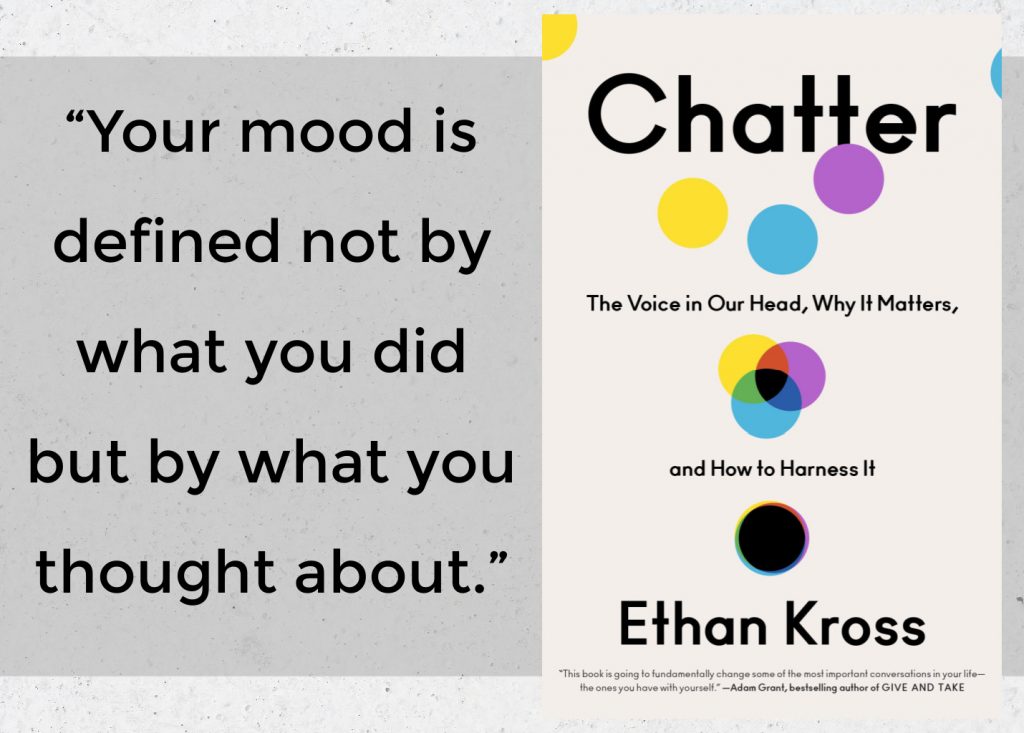
We Will Not Be Silenced: Responding Courageously to Our Culture’s Assault on Christianity, by Erwin W. Lutzer: A cultural resistance to Christianity dates back to the time of Jesus; it’s certainly nothing new! But here in America, Christians have generally benefited from the religious freedoms that come along with being the majority culture. That is starting to change, though; Christians values are no longer synonymous with American principles and virtues, and with this shift has come an increased hostility toward Christian belief. To be clear: the opposition faced by contemporary Christian Americans is nowhere near comparable to the persecution faced by Christ followers in other nations and in other time periods, but it is happening, and the “silencing” of Christian truth is a discussion the modern church needs to be having.
In We Will Not Be Silenced, pastor Erwin W. Lutzer addresses the most prominent issues creating tension between secular and Christian culture—issues such as freedom of speech, sexual confusion, harmful social justice ideology, and the debates between capitalism and socialism. In chapters dedicated to each topic, he identifies and defines the issue and explains why it poses a problem for the church and is contrary to God’s best. These are difficult subjects and I admire Lutzer’s willingness to shed light on such polarizing issues: his speaking out on any one of these topics would merit his being canceled in many circles, and Lutzer takes these (and more) on all at once.
I will freely admit that this was a challenging book for me to read and an even harder one to review. While I understand the importance of speaking up and speaking out to defend Biblical truths, I am also aware of the ways that books like this one can stir up controversy and be viewed as fear-mongering, inflammatory, or prompted by self-preservative intentions. Christians (being human) have done much harm in our spiteful and defensive discussions of these subjects, so secular criticisms of books like this one (and of the hypocrisy of Christians in general) is understandable. I do believe Lutzer is coming from an altruistic place in this book, and his words are (mostly) loving while also being truthful. But the book poses some problems, too.
I wish Lutzer offered more solutions and practical ways to “not be silenced” while also continuing to further the Gospel; this book spends most of its time examining the problem, and very little time helpfully addressing it. (I was reading Jon Tyson’s Beautiful Resistance alongside this book, which did make for a beneficial pairing.) I also wish Lutzer had been more selective in the issues he chooses to take on—he covers a lot of ground here, and I worry that this might alienate wide swaths of his audience whose resistance to one subject (particularly those that are most polarizing in Christian circles, such as how to address radical Islam or capitalism) could lead otherwise-receptive readers to tune out his entire message. Another approach might have been to take on issues agreed upon as problems by Christians from both sides of the aisle, such as poverty or sex trafficking or consumerism. In many ways, this book feels more political than religious (in other words, a defense of Republican ideals over Democratic ones), and a bit of editing could have made this more about Jesus and less about the political divide. This also might have made the book more relevant to audiences beyond the borders of the United States.
I didn’t agree with every one of Lutzer’s points, and as I already mentioned, I struggled with aspects of his delivery. That said, this is an important book worthy of reading and discussing. It left me convicted regarding ways I’ve fallen prey to secular thought and where I’ve compromised in my values and my faith. This is a book I will be thinking and talking about in the weeks, months, and years to come.
My Rating: 4 Stars.
Book Format: Audio
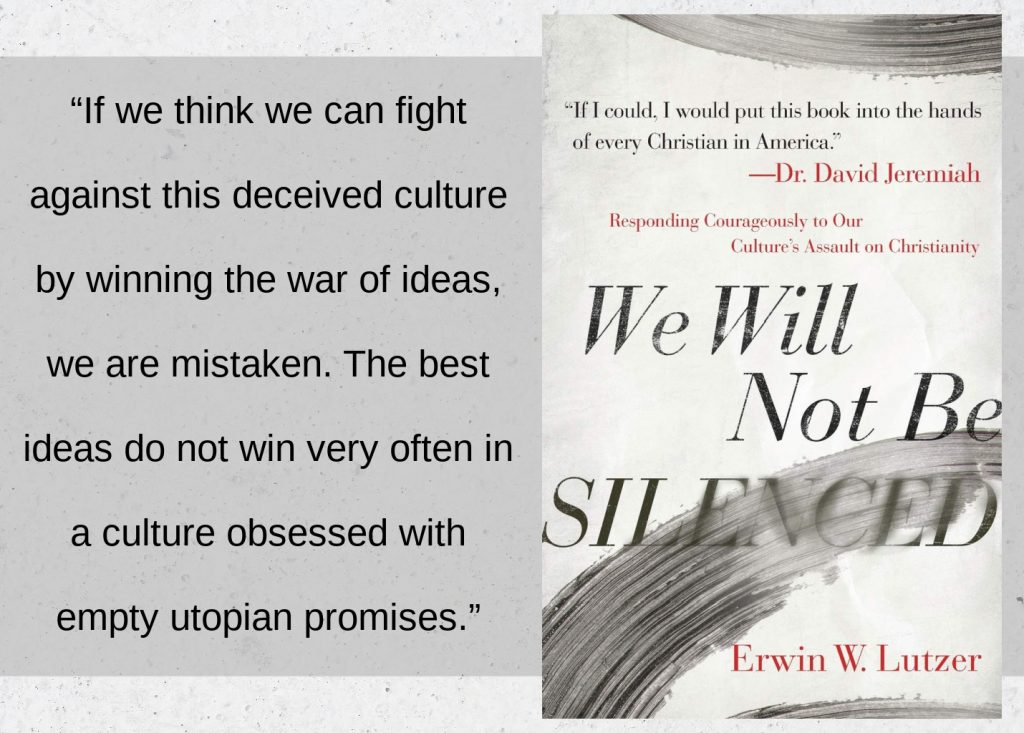
On Reading Well: Finding the Good Life Through Good Books, by Karen Swallow Prior: There are many reasons to pick up a book, but I know few readers who cite “becoming more virtuous” as their primary motivator for reading. But readers across generations have reaped the benefits of virtue cultivated through the reading of great literature. As a renowned English Professor, Karen Swallow Prior is familiar with the power of literature to transform a reader, and as a Christian she is aware of how books hold the power to instill virtue and cultivate character. Prior knows that it is not just which books we read, but how we read them that ultimately translates into virtuous behavior. In this book, she guides readers in selecting and carefully analyzing classic novels in search of the virtuous lessons they might offer.
In each of the book’s twelve chapters, Prior explores a virtue through the lens of a well-known book. Each of the virtues (from prudence and justice, to hope, chastity, and patience) is one identified by scholars throughout history as essential for good character and a flourishing life. Though the works of literature are the vehicle through which these virtues are examined, this is more of a philosophical and theological work that explores the nature of virtue itself, and of each particular virtue as it applies to life and culture. Prior gives definitions for these virtues and illustrates both their importance and the benefits they carry. I loved learning this, especially as it all pertains to books: as I’ve grown as a reader, examining the themes and ideas within a story has become a huge joy of my own reading and I delighted in doing this alongside such a masterful teacher. It was refreshing to be reading some nonfiction that is a little more evergreen, as most of the books I’ve read lately have centered on current events and ideas—there is so much beauty to be found in exploring concepts and books that have stood the test of time.
Karen Swallow Prior is a brilliant thinker whose discussions are fascinating and relevant. I was impressed with the insights she gleans from each novel and her ability to convey these ideas so beautifully. I have not read most of the novels this book explores, yet Prior brought me into each story and offered plenty of thought-provoking takeaways (as well as a nudge to pick up the books for myself). This is a highly discussable book that achieves its goal of understanding what the good life looks like and how it can be better understood and sought after through the reading of good books.
I read this just after reading Mitali Perkins’ Steeped in Stories and the two make an excellent book flight; they are nearly identical in format, yet Perkins’ book takes on children’s literature while Prior’s book focuses on novels for adults. Both interweave philosophy, history, literature, and culture, and both are by thoughtful Christian writers with keen insight, noble character, and skillful articulation and storytelling.
My Rating: 4.5 Stars (Rounded down to 4 stars on Goodreads.)
Book Format: Audio
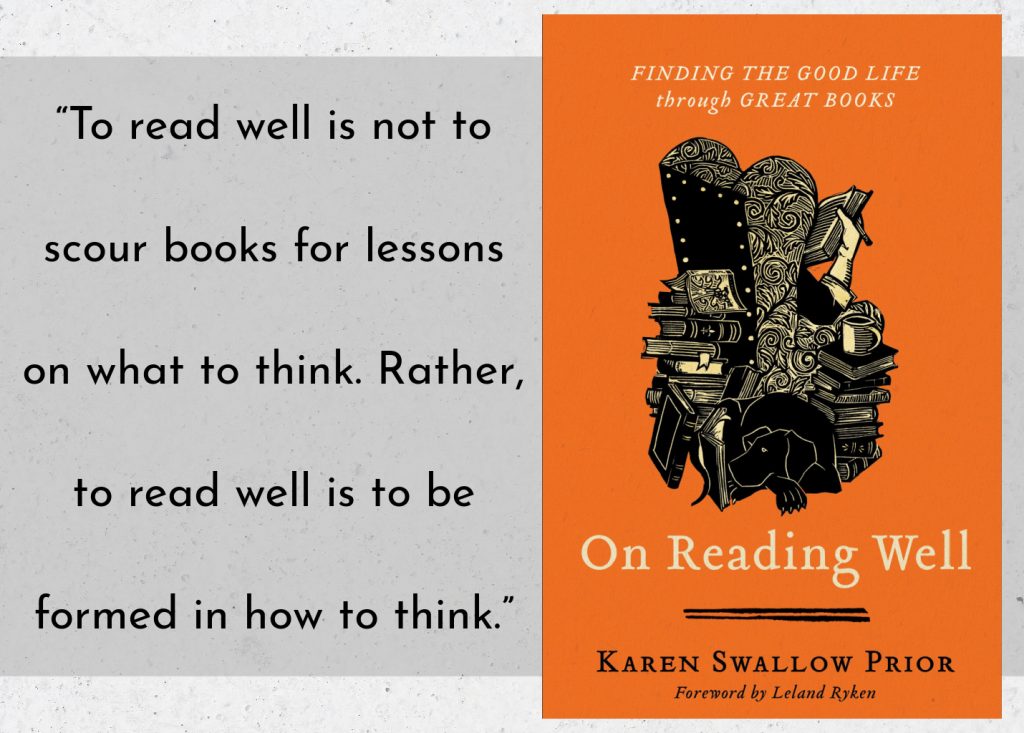
Have you read any of these books? I’d love to hear your take!
I only recently found out that JMC has a new book! While living in Portland, I used to visit his church for a few years before moving. Its a solid church and he is a solid Bible teacher. I really enjoyed his parents books too, Raising Jesus Followers (both parents) and He Speaks in the Silence (his mom). I will need to pick this one up soon! Great review!
Here are my recent reviews, if interested: https://elle-alice.blogspot.com/2021/10/october-book-reviews.html